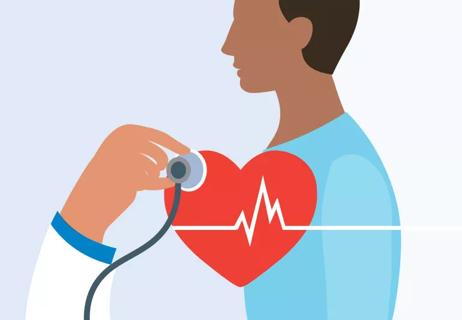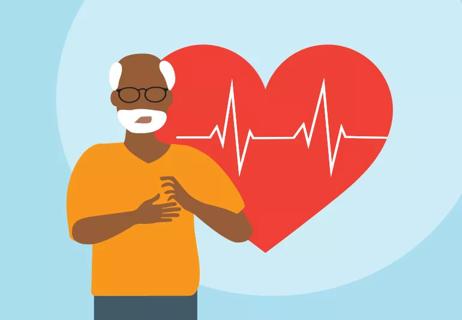Women are particularly vulnerable to the effects of stress on the heart

Whether an argument causes you to lose sleep, traffic makes you miss another appointment or the details of an upcoming wedding overwhelm you –stressful events are normal occurrences in daily life.
Advertisement
Cleveland Clinic is a non-profit academic medical center. Advertising on our site helps support our mission. We do not endorse non-Cleveland Clinic products or services. Policy
But when stress becomes a constant companion it can cause some serious negative consequences on our health. Stress increases the plaque rate and it can accumulate in the arteries. It makes platelets sticky and prone to forming clots that can block these arteries. Stress can also cause arteries to constrict, starving the heart of nourishing blood and triggering chest pain or a heart attack.
Women are particularly vulnerable to the impact of stress on the heart – sorry ladies! That’s why it’s so important that women with heart disease (or its risk factors) should recognize stress and learn how to cope with it in a healthy manner.
“We can all relate to being burnt out, depleted and stressed,” says psychologist Carolyn Fisher, PhD. “But it doesn’t mean we can’t do anything about it.”
Stress can be broadly defined as a threat or demand placed on your body that outweighs your ability to cope with it.
Women tend to become stressed over issues involving home, family life and health-related events, while men are likely to be bothered by finances, work-related issues and relationship problems.
Regardless of the cause, stress sparks our fight or flight response that floods the body with adrenaline. When stress becomes constant, the body remains in alert mode. And perpetually high levels of stress hormones can trigger physiological changes.
“Unfortunately, women report higher levels of stress and feel the impact of stress more than men,” says Dr. Fisher.
Advertisement
Women tend to cope by engaging in social activities, such as calling up friends, or sedentary activities, such as reading, watching television or eating.
Men turn to physical activities, such as exercising or playing sports.
“Taking an active role in facing your stressor is healthier and more effective than avoiding it by sleeping, drinking or isolating yourself,” explains Dr. Fisher.
There are many techniques for minimizing your response to stress:
For maximum efficacy, these techniques should be supported by other good health behaviors.
“Getting enough sleep, eating right and exercising makes us feel more armed and ready,” says Dr. Fisher.
Whatever stress management techniques you choose, you will need to practice them regularly to prevent stress from building up.
“It must become part of your daily routine, like bathing or brushing your teeth,” says Dr. Fisher. “But think of the benefits. Once the stress is gone, who’s to say another huge stressor will never happen again? At least you’ll have the tools to prevent it from taking a detrimental toll on your health.”
Learn to recognize these symptoms before a heart attack or other serious medical problem occurs:
Physical:
Emotional:
Behavioral:
Cognitive:
Advertisement
Learn more about our editorial process.
Advertisement

Inactivity increases your risk of aches, pains and chronic diseases

Research shows a strong association between rheumatoid arthritis and heart issues

Knowing what you can do to prevent or manage heart disease is half the battle

A skipped heartbeat is usually your heart returning to its normal electrical path

Don’t self-medicate with vitamin supplements without consulting a doctor first

When your heart races, pounds or flutters, don’t panic, and try these calming methods

Too little magnesium can make your heartbeat go off beat

High heart rate, pain and dizziness can signal something more serious than a skipped beat

If you’re feeling short of breath, sleep can be tough — propping yourself up or sleeping on your side may help

If you fear the unknown or find yourself needing reassurance often, you may identify with this attachment style

If you’re looking to boost your gut health, it’s better to get fiber from whole foods